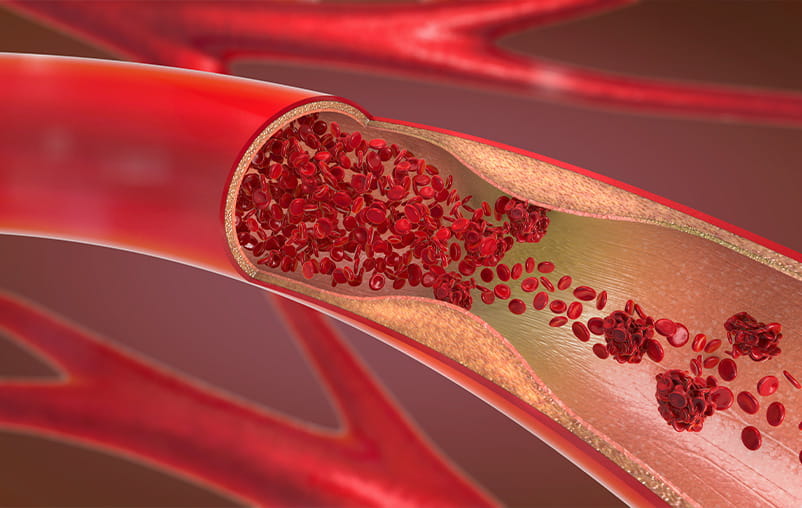Have you ever felt your heart flutter after having too much coffee? Or maybe you felt your chest pounding abnormally hard after a strenuous workout. You might have experienced heart palpitations, which are common and generally harmless.
Learn more about what causes heart palpitations and when to see a doctor.
What Are Heart Palpitations?
Electricity produced by the sinoatrial node of the heart regulates your heart rate. This group of cells is known as the natural pacemaker. Improperly timed electric pulses may cause your heart to skip a beat, add an extra beat or beat irregularly.
Palpitations can be felt in your chest and neck during activity or when you’re at rest. They are usually harmless, and sometimes even unnoticeable. They typically only last a few seconds.
Symptoms
Your heart may feel like it is:
- Fluttering
- Pounding
- Racing
- Adding an extra beat
- Skipping a beat
- Beating erratically
Palpitation vs. Heart Arrhythmia
Heart palpitations are a type of irregular heartbeat (arrhythmia). Some heart arrhythmias are more serious and require emergency medical attention. A common type of arrhythmia is atrial fibrillation, which often requires treatment.
What Causes Heart Palpitations?
Heart palpitations may be caused by:
- Caffeine
- Anxiety
- Pregnancy
- Exercise
- Alcohol
- Nicotine
- Spicy foods
- Some medications
Diagnosing Heart Palpitations
Your medical provider can diagnose heart palpitations by listening to your heart and lungs and reviewing your medical history. They may ask questions to get a better sense of your lifestyle and habits, since stress, diet and exercise can contribute to palpitations.
To help your doctor understand your heart palpitations, provide specific details, such as how often they occur, what triggers them and what helps them go away.
When to Seek Medical Attention
Heart palpitations are generally not dangerous or cause for concern.
However, you should seek medical attention for heart palpitations if you have:
- Pre-existing heart disease
- Unusual sweating
- Dizziness
- Pressure in the chest
- More frequent palpitations
Heart palpitations are also more of a concern if you are at risk for heart disease, have diabetes or high cholesterol.
Call 911 if you experience:
- Have ongoing palpitations that last more than a few minutes
- Experience heart arrhythmias
- Have trouble breathing
- Can’t catch your breath at all (even when resting)
- Experience fainting associated with prolonged loss of consciousness or injury
- Chest pain that becomes persistent or worsening
- Especially if associated with nausea, clamminess, shortness of breath, fainting or palpitations
How to Treat Heart Palpitations
Heart palpitations don’t normally require treatment because they resolve on their own. However, some lifestyle adjustments can help prevent them in the future, depending on their cause.
For instance, if caffeine triggers your palpitations, reducing your caffeine intake might help. Similarly, if stress is a factor, your doctor may suggest yoga, mindfulness, exercise or stretching to help manage your emotional well-being.
Heart Care at University Health
If you’re experiencing heart flutters or irregular heartbeats, the heart care team at University Health can help determine the cause and find the best treatment for you.





